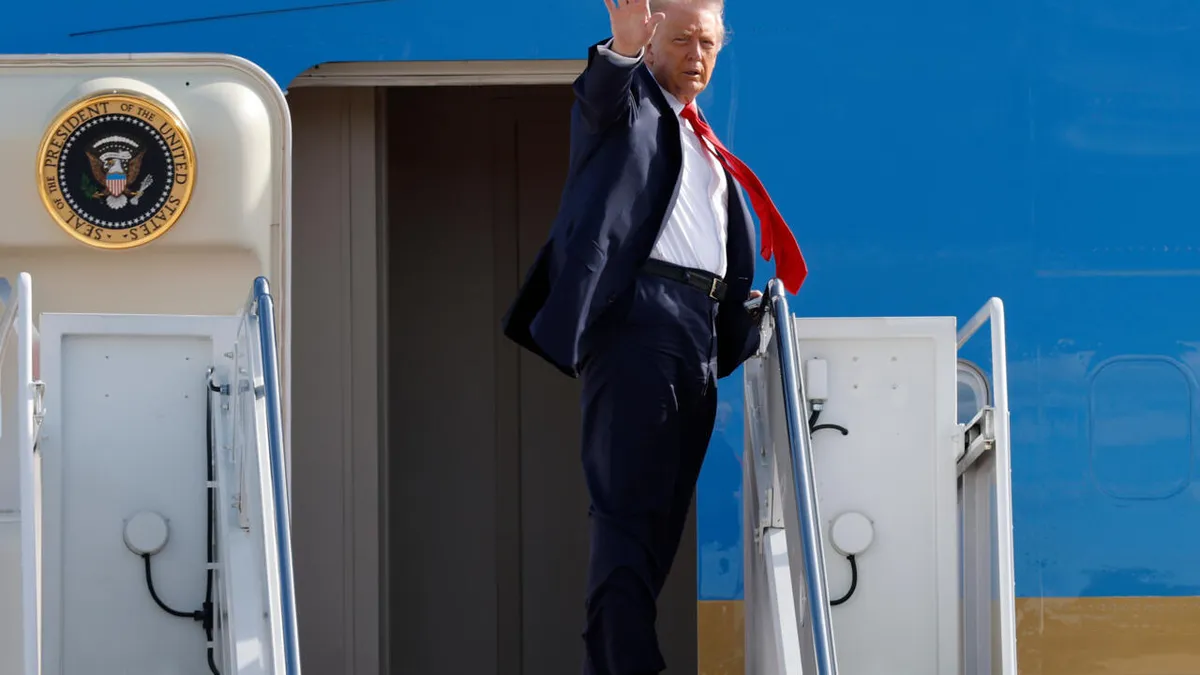
On Saturday, US President Donald Trump issued a stark warning about the situation in Nigeria, the most populous country in Africa, threatening to deploy the military with “guns-a-blazing” if the Nigerian government does not take action to stop what he described as the killing of Christians by Islamist groups. In a provocative social media post, the Republican leader expressed his concerns, stating that he had asked the Pentagon to develop a potential plan of military intervention. This declaration came just a day after Trump emphasized that Christianity is facing an “existential threat” in Nigeria.
Nigeria is currently facing multiple conflicts that have resulted in significant casualties among both Christians and Muslims. Experts warn that the violence is not limited to one religious group but affects all communities. In his post, Trump stated, “If the Nigerian Government continues to allow the killing of Christians, the U.S.A. will immediately stop all aid and assistance to Nigeria, and may very well go into that now disgraced country, ‘guns-a-blazing,’ to completely wipe out the Islamic terrorists who are committing these horrible atrocities.”
Trump further instructed the Department of War to prepare for possible military action, describing any potential attack as “fast, vicious, and sweet,” drawing a comparison to the brutal tactics employed by terrorist groups. He warned the Nigerian government that they “BETTER MOVE FAST!” in addressing the situation. This alarming rhetoric has raised eyebrows among political analysts and international relations experts.
Pentagon chief Pete Hegseth echoed Trump’s sentiments, supporting the call for military preparedness. Hegseth shared Trump’s post on social media, stating, “Yes sir. The Department of War is preparing for action. Either the Nigerian Government protects Christians, or we will kill the Islamic terrorists who are committing these horrible atrocities.” This statement indicates a potential shift in US foreign policy towards Nigeria, especially concerning the protection of religious minorities.
Trump’s assertions regarding the violence against Christians in Nigeria were made without presenting concrete evidence. He claimed that “thousands of Christians are being killed,” attributing the violence to radical Islamists. These claims have been supported by some conservative politicians in the US. For instance, Congressman Chris Smith has urged the State Department to designate Nigeria as a “Country of Particular Concern” (CPC), a designation that Trump announced in his recent statements, highlighting the dangers faced by Nigeria’s Christian population.
Accusations of Christian persecution have not only come from American officials but also from within Nigeria. However, the Nigerian government, led by President Bola Ahmed Tinubu, has denied these allegations. Tinubu stated on social media that the characterization of Nigeria as religiously intolerant does not reflect the nation’s reality, asserting that “religious freedom and tolerance have been a core tenet of our collective identity.”
Nigeria is deeply divided between a predominantly Muslim north and a largely Christian south, with ongoing security challenges that complicate the situation. The northeastern region has been plagued by a Boko Haram insurgency, which has claimed over 40,000 lives and displaced more than two million people since 2009, according to United Nations reports. Additionally, conflicts between Muslim herders and Christian farmers in central Nigeria are often depicted as religious in nature but are primarily driven by competition over land resources.
As tensions rise and international scrutiny increases, the situation in Nigeria remains precarious. The potential for US military intervention adds another layer of complexity to the already intricate dynamics of religious and ethnic conflict in the region.